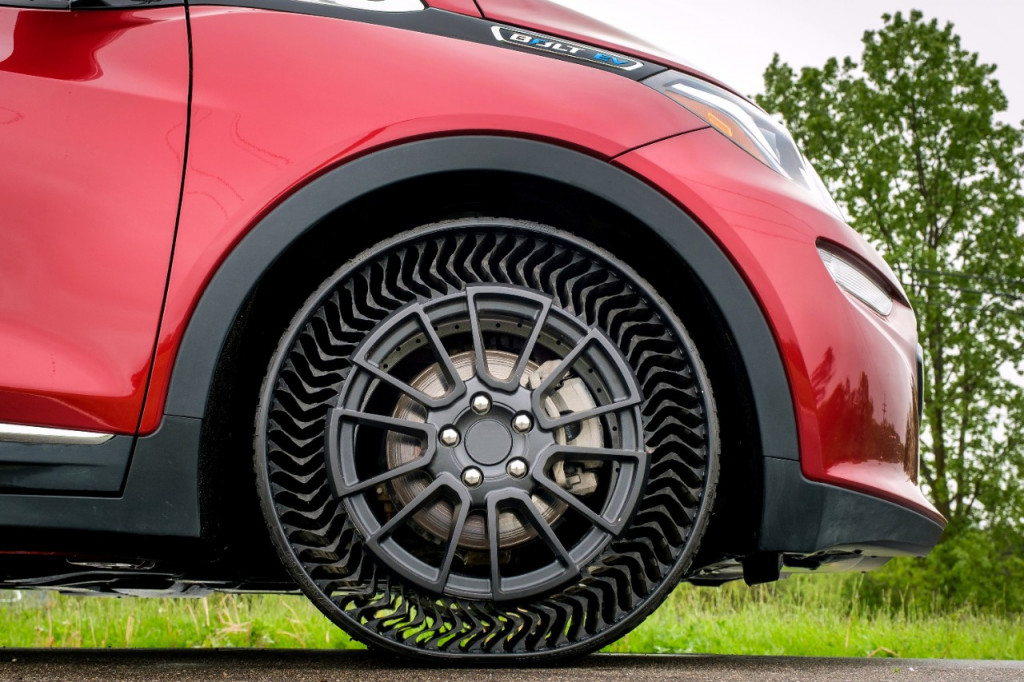Michelin has been testing airless tires for years with an eye toward EV use. While they still aren’t ready for production, executives believe they could be a good fit for autonomous vehicles and law enforcement.
European police forces have expressed interest in airless tires because, unlike conventional pneumatic tires, they can’t be shot out during car chases, Michelin senior vice president Bruno de Feraudy said in a recently published interview with The Drive, in which de Feraudy also confirmed that Michelin has tested its Uptis airless tire at up to 130 mph with police use in mind.
GM, Michelin Uptis airless tire prototype
Michelin CEO Florent Menegaux told The Drive that airless tires will likely be limited to “certain types of applications,” but that could also include autonomous vehicles. Again, the main advantage would be avoiding punctures, so that passengers wouldn’t have to get out and change a tire.
In the same interview, Menegaux said Michelin has been in talks with Tesla about testing its Uptis tires, and has had discussions with General Motors as well. While not mentioned in this interview, an airless tire could fit in with the higher durability and performance requirements that Michelin is working on with Hyundai. In 2022 the two companies announced a partnership to develop environmentally friendly EV tires.

GM, Michelin Uptis airless tire prototype
Michelin’s current design for airless tires goes back to the Uptis Protype that it introduced in 2019, pointing out that it might be offered in an EV as soon as 2024 (and, in the meantime, tested on a Bolt EV). The executives interviewed by The Drive didn’t confirm the 2024 launch date, however.
Other companies have considered airless tires as well; Toyota and Sumitomo showed a fuel-cell concept with airless tires in 2017. Yet while airless tires have potential benefits, as well as a futuristic vibe, some of the innovation in the near future may also have to tackle growing concern over microplastic pollution from vehicle tires.
